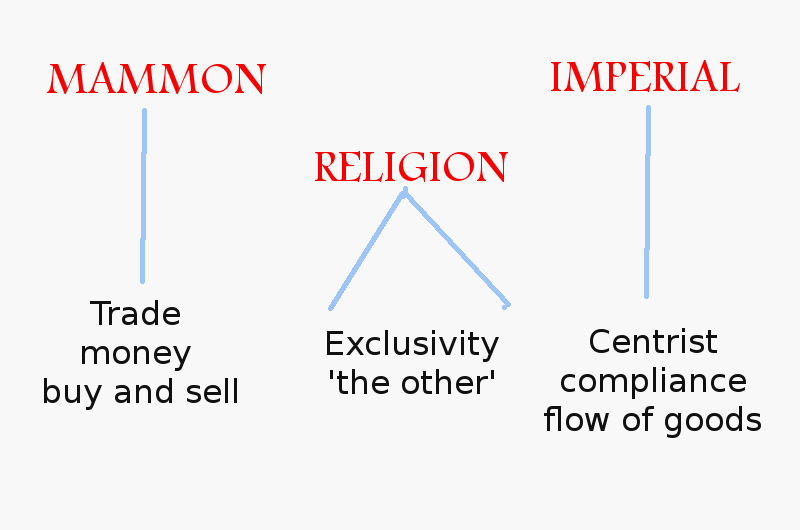This will be a quick blog to suggest the easiest way to understand election. By easiest of course I mean the biblical my way. From as far back as I can remember I had always struggled to understand election as some chosen and others not. The Armininian position of elect according to foreknowledge was at least a softer option. In that approach God did not influence the choice but simply knows beforehand who would respond (normally also the Greek view of timelessness was also part of the package, so God knowing everything without being the cause of the knowledge). The Calvinist position was effectively the reverse of that – so that foreknowledge was based on pre-determination simply never sat easy for me. It seems the Calvinist position reversed this because ‘the sovereign will’ of God has to be preserved. His power and will being pre-eminent.
It seems unlikely that Scripture suggests a literal understanding of Adam and Eve as the first human pair but rather to understand them as either simply representatives of humanity or probably better as some sort of prototypical analogy to Israel as the chosen nation. They stand in unique relationship to God, as God’s representative (image) on the earth. As such they have a responsibility. Chosenness comes with a task responsibility. The task was to flow out of a relational understanding, for the task was to be carried out as representatives of God. God appears in the garden as the Gardener (an insight from Ray Mayhew). Hence the beautiful phrase from Mary to the unrecognised risen Jesus ‘I thought you were the gardener’! How God appears in the original creation and how he appears in the New Creation. God does not appear in the garden as the despot, dictator nor even as king. He walks in the garden as the gardener. The task is not to rule but it is to rule in a certain way. By getting hands dirty, serving, cultivating, nurturing. Hence, with the choice of the disciples Scripture says Jesus first chose them to ‘be with him’. If there is no ‘being with’ the manner in which the task is performed will not be understood. Jesus explained that in a very strong way when he said miracles will even be done in his name but his confession will be he never knew the person performing the miracle.
This election to task I understand is at the heart of Israel’s reason for being. Israel (and then the body of Christ) is called as the royal priesthood. That which comes to serve the nations, to represent God to them and them to God, to enable them to become the best (most redemptive) version of what they can be, where in mutual co-operation and partnership something of heaven appears within creation. This is a vision not of transformation with the church triumphant, but of transformation with the body of Christ present as salt (throughout) and as light (not to be looked at but to enable others to have clearer sight). The church is vital, and triumphant but not over others but triumphant in completing the task.
Election is in him
‘Chosen in him before the foundation of the world.‘ The language is precise. This is not an expression of arbitrary election but of election that is in him. I parallel this with the confession of a Jew. A Jew was chosen in Abraham and a date can be attached to this before the birth of that Jew, say 1800BC. The individual Jew is not the primary chosen one. Abraham is the chosen one, he is the elect one. The Jew is chosen in him. Because the Jew is in Abraham the Jew is chosen. And the Jew can date that… way back in time. Likewise the believer is chosen in Christ. Jesus is the chosen one, the believer is chosen in him. When… way back in time!! Even before the foundation of the earth for Jesus is the eternal chosen one. The moment a person is in Christ they are chosen. When did that choice take place? Before the foundation of the earth. Whoever is in Christ is chosen. The predetermination is not over some choice to save some and not others, but that those who are chosen (those who are in Christ) will be conformed to the image of Jesus. Jesus is the chosen one, those in him are pre-destined, they are caught up in his destiny, and therefore will be conformed to his image.
I have used the above parallel between Jew and believer, but we should really push this a little beyond that. The focus of Scripture is not primarily on individuals, but on a corporate people. It is a ‘we’ not an ‘I’. ‘We’, the nation of Israel, ‘we’ the ekklesia are chosen, elect. The corporate reading of Scripture opens new vistas. So, in reading Romans, Daniel Kirk suggests the sense of ‘all have sinned and come short of the glory of God’ is not a statement of the evil-ness of humanity, but if we read it as ‘both (Jew and Gentile = the entire world) have sinned…’ that we will better get Paul’s argument, ‘to the Jew first, then to the Gentiles’.
Summary: election is
- coporate not individual
- to fulfil a task
- in him, he being the chosen one.


